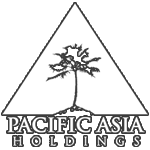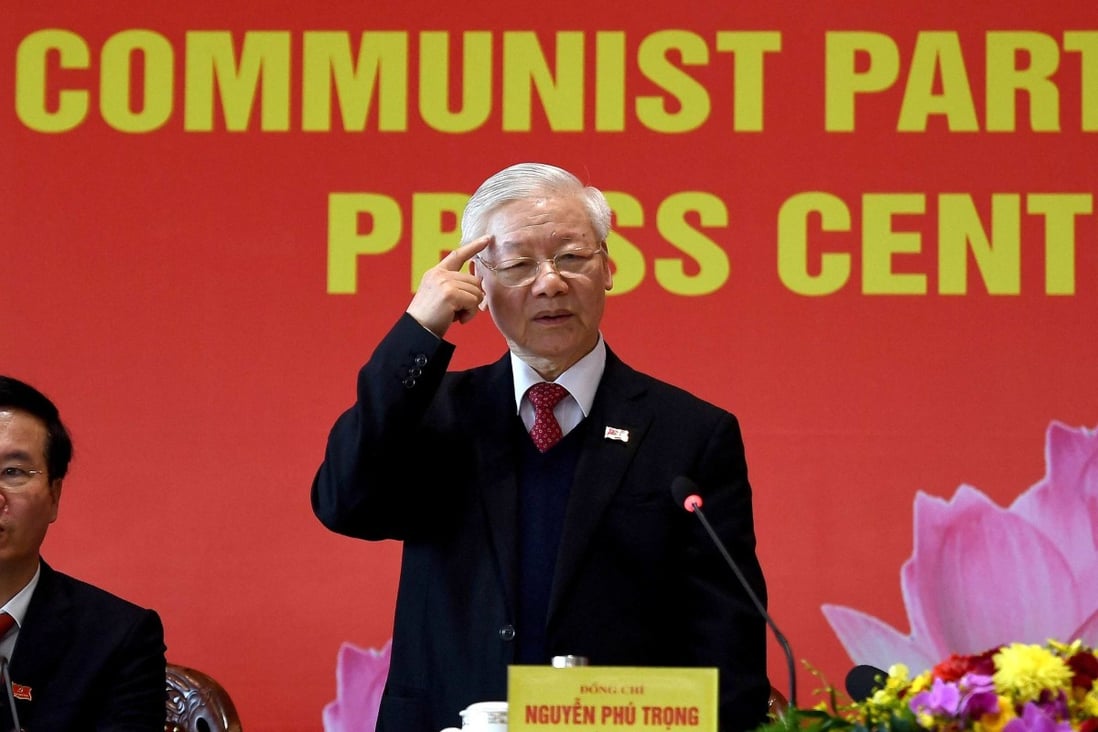- A wide-ranging corruption crackdown spearheaded by the Vietnam Communist Party chief has claimed the scalp of a former president and shows no signs of stopping
- The tussle at the top comes as Vietnam battles inflation and as fears of debt bubbles inside its property sector leave investors unsettled
The downfall of Vietnam former president Nguyen Xuan Phuc over a corruption crackdown linked to a Covid-19 test kit tender played out in front of a public normally forbidden from examining the mechanics of the all-powerful Communist Party.
Now, as the anti-graft crackdown ricochets across the country, experts say it’s moving beyond the confines of party politics to chip away at confidence in the economy as technocrats are sidelined and officials become reluctant to sign off on new projects, fearing they too may fall under scrutiny.
Phuc resigned after the party accused him of “violations and wrongdoing” over his messy family ties to the Viet A Technology Corporation, which won a US$175 million procurement order for test kits at the height of the pandemic that allegedly spurred the embezzlement of millions of dollars of state money.
His demise has been swift, stunning and shared over social media by a public used to accepting, not debating, changes at the top of Vietnam’s one-party communist state.
“Many people predicted that Mr. Phuc would resign … but I was quite surprised because it came quite quickly,” she said, using an alias for fear of repercussions in the tightly controlled country.
Vietnam’s Communist Party prides itself on the projection of stability, which has powered decades of economic growth, experts say.
It brooks no dissent, closing down domestic criticism, controlling the media and arresting activists.
Yet observers say the very public nature of the purge of Phuc, in a country where information is drip-fed to its 97 million people, was intended to send a message.
It was part of a so-called ‘blazing furnace’ crackdown on graft, spearheaded by the General Secretary of the Communist Party Nguyen Phu Trong, who holds the country’s real power.
Just two years shy of his eightieth birthday, Trong has been at the helm since 2011, earning an exemption from the normal two-term limit and sidestepping the age cap of 65.
In August last year, he warned that there are no “restricted areas” in the corruption fight, according to state media. Some Vietnamese have welcomed the clean up.
You never saw a top leader … step down just two years into his position
“I think it’s working well,” said Thanh, 28, also giving a pseudonym, of Trong’s purge.
“We haven’t had anything like that before. He’s the first one to do it … it’s not going to completely demolish [corruption] but a part of it will be removed.”
There are four key pillars to Vietnam’s political system: the general party secretary, the largely ceremonial president, the prime minister, and the chair of the assembly, with candidates groomed years in advance to serve set terms of five years.
Phuc was replaced as president by Vo Van Thuong, who is likely to back Trong’s drive to reassert Communist Party doctrine, discipline and control.
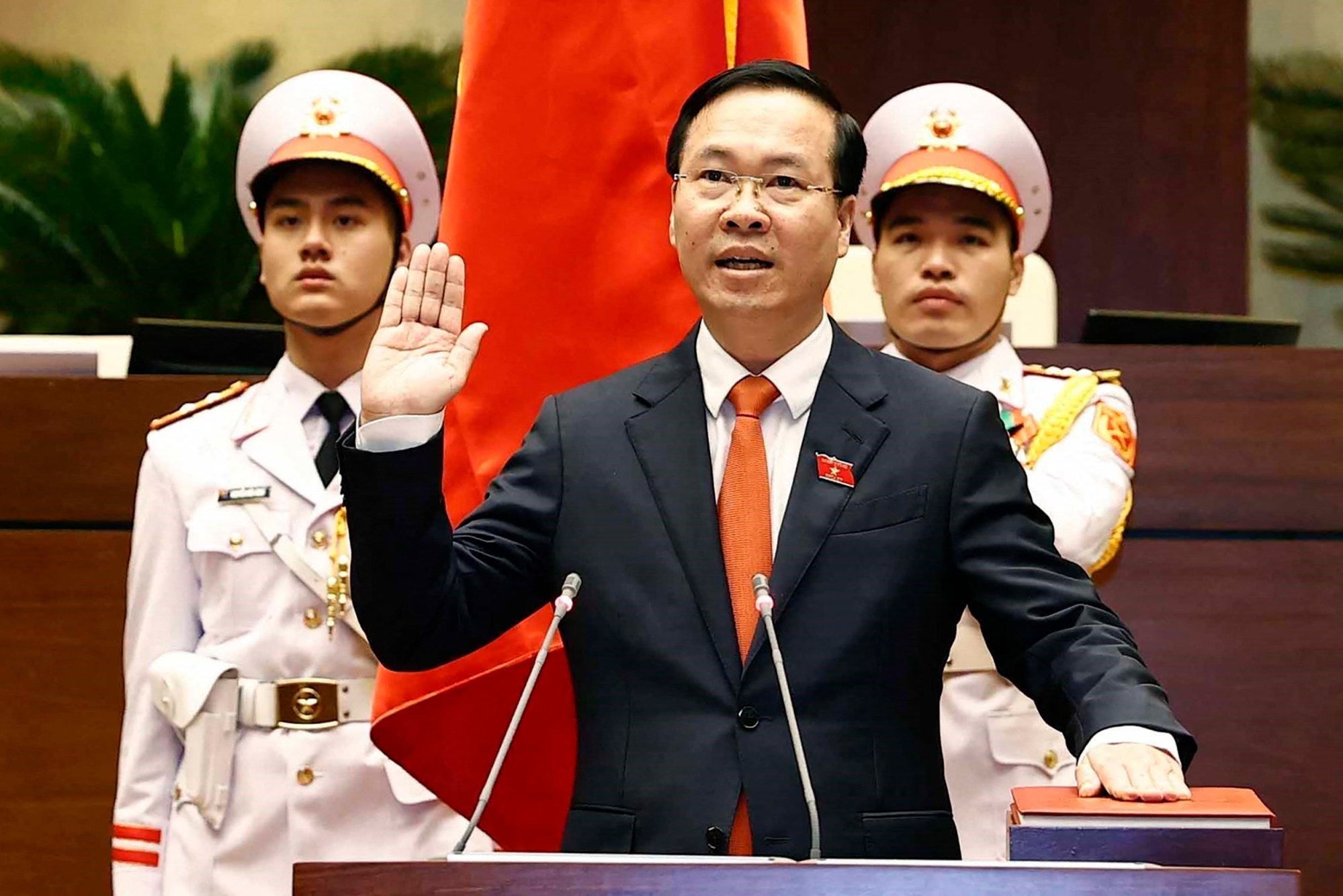
“[His confirmation] sends a signal through the system that ideology is here to stay,” said Nguyen Khac Giang, visiting fellow at the ISEAS – Yusof Ishak Institute in Singapore.
He said that while Trong is known as a “very clean” leader determined to drive out corruption, party politics likely motivated the shuffling of the pack.
“You never saw a top leader … step down just two years into his position,” Giang added. “This move could not have happened without Nguyen Phu Trong’s agreement and without the push from people from his side.”
Investors watching
Vietnam’s Communist Party has helped script one of Asia’s great growth stories.
Market liberalisation has been essential to Vietnam’s push towards middle-income status since before Doi Moi, the economic reforms that opened the country to global trade beginning in the mid-1980s.
That took the handbrake off growth, gradually retooling a war-battered agrarian nation into a base for global supply chains. Nike makes its trainers in Vietnam, while last year Apple said it will manufacture its watches and MacBooks in the Southeast Asian country.
Lift-off was particularly speedy in the economic powerhouse of Ho Chi Minh City, which now teems with ambitious young workers seeking spots in start-ups or ladders up to the riches needed to buy into the city’s expensive housing market.
Ex-president Phuc was pragmatic and well-trusted by foreign investors, analysts say. “He oversaw the spirit of amazing economic growth when Vietnam really started to absorb large amounts of foreign capital,” said Zachary Abuza, a Southeast Asia expert at the National War College in Washington D.C.
“I’m still not convinced it was about corruption,” he said of the president’s fall, instead pointing to a push and pull within the party “between the economic technocrats – the guys who actually know how to run the place and grow the economy – against the party ideologues and people like Trong who really want to assert Communist Party control.”
The tussle at the top comes at a difficult time for Vietnam’s economy, which is battling inflation as well as fears of debt bubbles inside its once red-hot property sector.
Part of Trong’s assault on corruption late last year brought the arrest of high-profile property executives and then a rule change to tighten borrowing for overleveraged real estate firms.
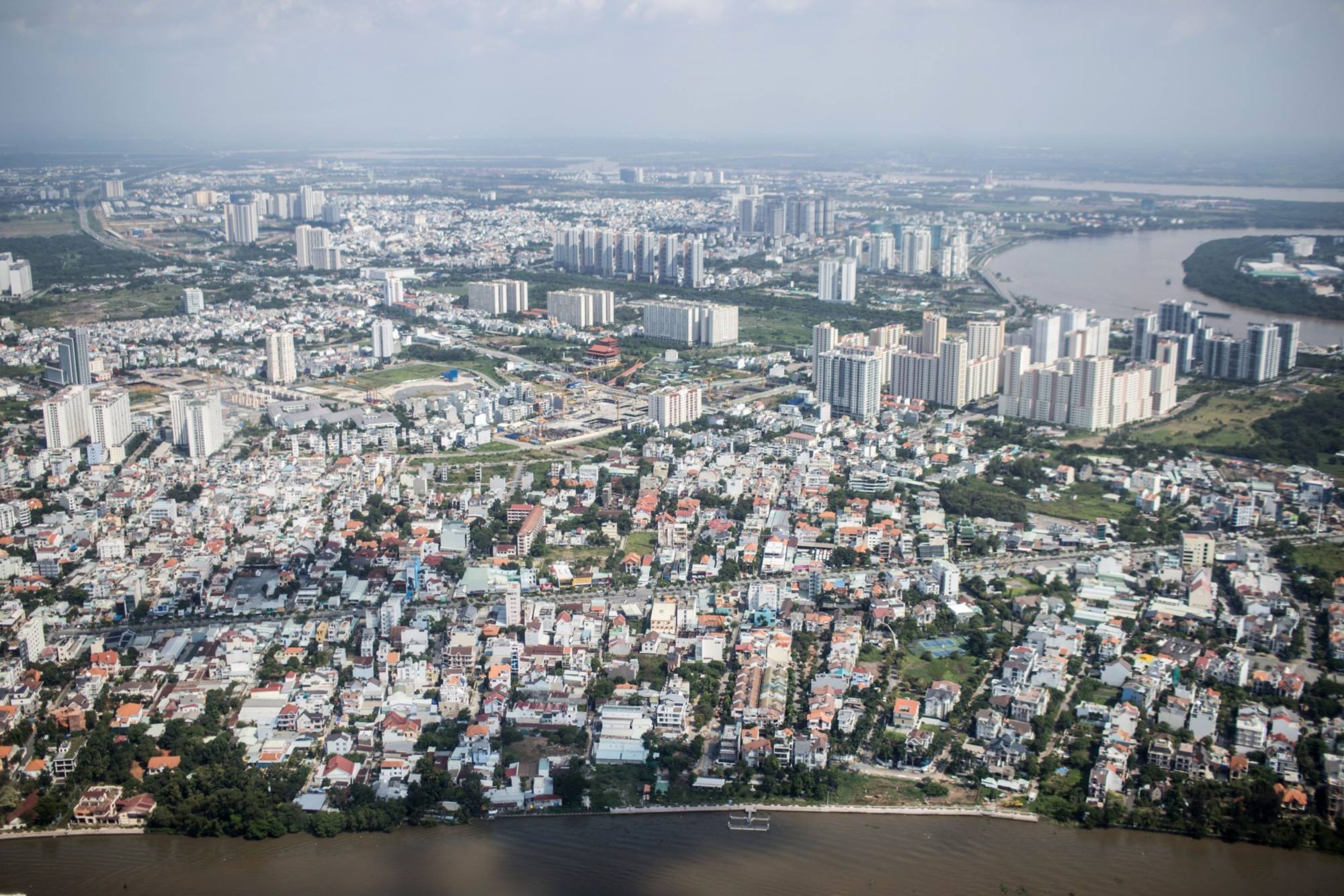
Billions of dollars are now owed by real estate firms in bond repayments this year, sparking concern for the solvency of companies and a possible contagion into the wider economy.
One property agent who was recently made part-time by her Ho Chi Minh City company due to falling sales said the sector was braced for a rough period.
“Even rich buyers now say they will not make returns on their investment,” she said, giving her nickname, Kimmie, as she is not authorised to speak to the media.
“We have to hope construction continues because if demand falls, the big buildings you see around the city may never get finished.”
Vietnam’s stock market and currency have also endured a rocky few months, with the dong hitting record lows. Experts attribute the volatility to the ripple effects of Russia’s invasion of Ukraine but say the arrests of top execs has also knocked investor confidence.
And the anti-corruption crackdown campaign appears far from complete, as Trong takes on Vietnam companies big and small, many with rumoured links to politicians.
On March 5, hundreds of police stormed the headquarters of F88 – a financial firm based in Ho Chi Minh City’s crowded Go Vap District with 830 branches across the country as of 2020.
Local media reported that hundreds of employees worked as debt collectors, threatening and extorting customers in what has been labelled a loan sharking operation.
Vietnam’s economy is in crisis, people are unemployed, bankrupt, and the demand for loans increases
Ho Chi Minh City-based social activist Tran Anh sees that raid as revelatory of the harsh reality of many Vietnamese, and blames inequality that has worsened on Trong’s watch.
“Vietnam’s economy is in crisis, people are unemployed, bankrupt, and the demand for loans increases,” he said. “Trong wants to acquire these large companies and corporations to punish political opponents.”
The effects of the crackdown are wide-ranging – and not always predictable. Le Cong Dinh, a long-time civil-society activist based in Ho Chi Minh City, said the local economy is stalling as officials fear harsh retribution for any misdeeds.
“Investors could not do business without licences or approval by the local government,” he said. “At present, all officials could not decide nor approve any investment projects. They are scared of future accusations against them.”
Vietnam renewable projects are also feeling the stultifying effect of the corruption crackdown. “It’s a very confusing time for renewable energy development now,” said Hoang Giang, president of Pacifico Energy Vietnam, told Bloomberg. The renewable firm invested US$65 million in a wind farm that has been tied up in red tape for months and unable to progress. “All the wind projects like us are losing money and we are facing bankruptcy,” he said.
Who guards the guards?
Vietnam’s reputation for political stability has been key to the country’s uphill economic trajectory.
Last year, the Southeast Asian nation reported record growth – boasting a GDP increase of just over 8 per cent, albeit skewed by the rebound from the pandemic.
That upswing made Vietnam Asia’s fastest-growing economy, driven by foreign manufacturers who switched supply chains to the country as China’s trade tensions with the United States rumbled on, and Beijing enforced harsh Covid-19 protocols, leaving factories closed.
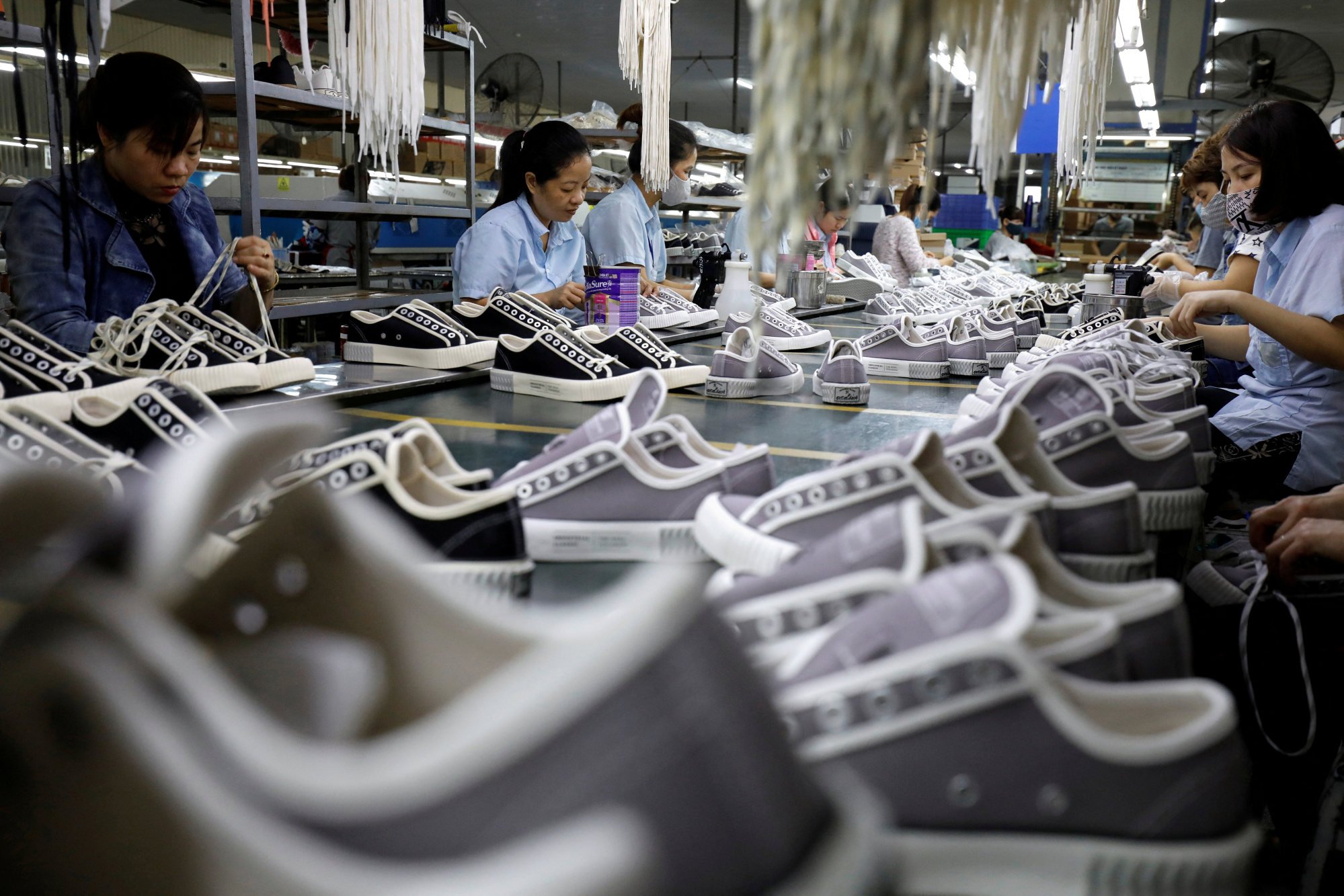
Foreign investment in Vietnam reached US$22.4 billion last year, more than regional supply-chain rival Thailand.
Tech manufacturing and other supply chains are pushing into northern Vietnam. In February, Apple supplier Foxconn announced an investment of US$62.5 million into a new site in Bac Giang.
While experts agree a major shift in Vietnam’s economic policies is unlikely as a result of the change in president and anti-corruption clampdown, the country’s image may be tarnished.
“The corruption crackdown campaign itself hasn’t yet affected the Vietnam FDI sector,” Giang said. “[But] the political shake-up is causing concerns from foreign investors about the Vietnam business environment and political stability.”
You look at the hot money flowing into Vietnam and it’s just billions and billions of dollars … everyone wants their cut
“Previously, investors chose Vietnam because of political stability,” said activist Tran Anh. “Communist Party leaders were corrupt, but they were united. Now, they are looking for ways to harm each other.”
There are also wider doubts about the efficacy of the purge and the motivations of those behind it.
Analyst Abuza said investors have told him bribery is no longer taking predictable forms. “Everyone is trying to shake down the investors. They are experiencing corruption in places they didn’t have to count on it a few years ago,” he said.
“You look at the hot money flowing into Vietnam and it’s just billions and billions of dollars … It’s just incredible amounts of money and everyone wants their cut.”
Phuc’s links to the Covid-19 test kit scandal illustrate the axis between power, social networks and wealth in Vietnam, experts say.
A businesswoman who is a close associate of Phuc’s wife and Phuc’s niece were major shareholders of Viet A. Both were arrested in early January. The medical supply company monopolised the market for Covid tests and inflated the price by 45 per cent during the country’s worst crisis in decades, falsely claiming the kits had been certified by the World Health Organization.
Activist Tran Anh speculated that the anti-corruption drive is really just a smokescreen to weed out political rivals.
